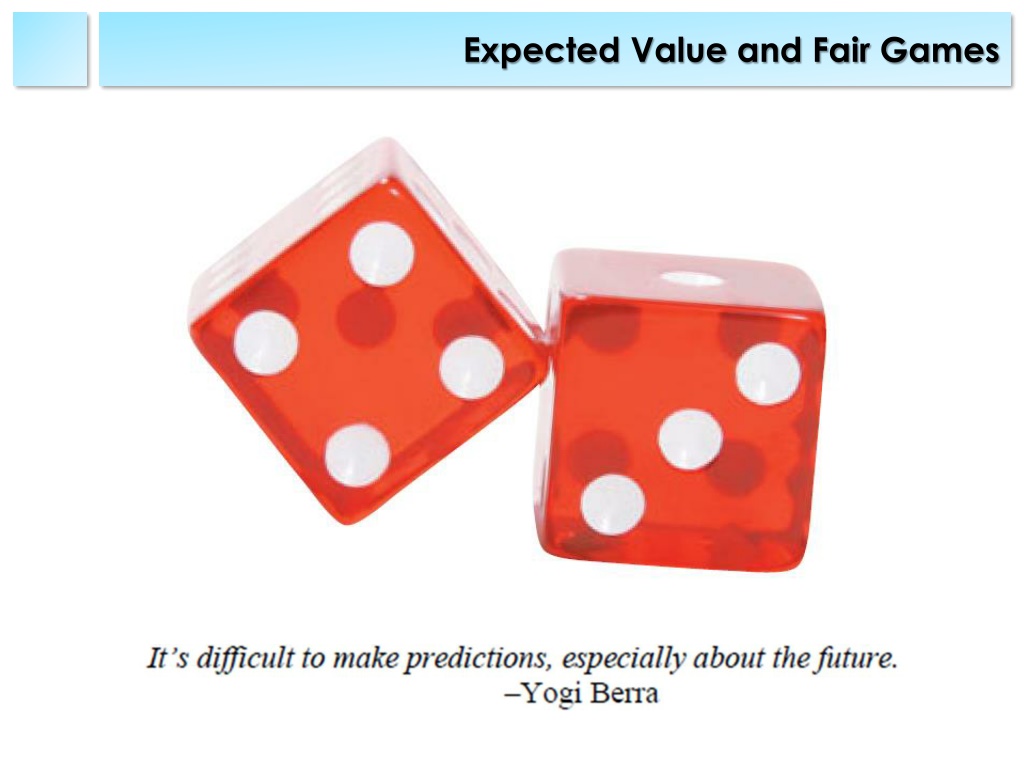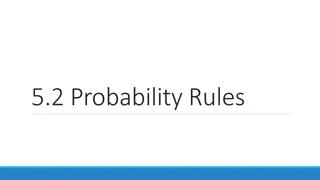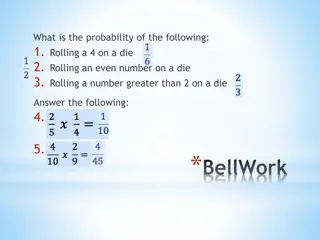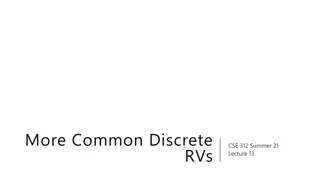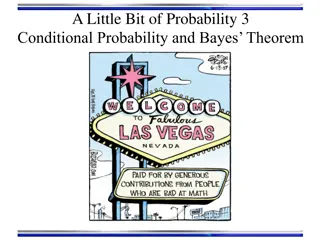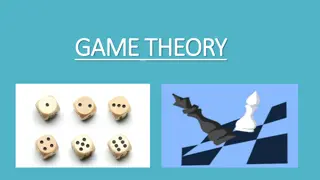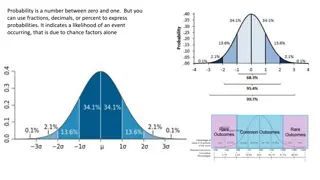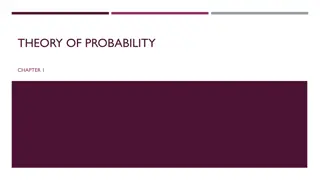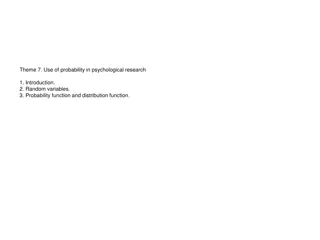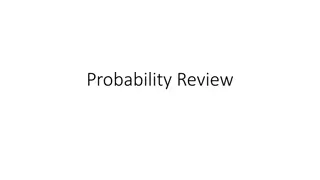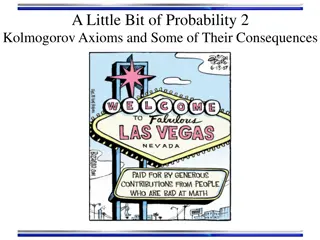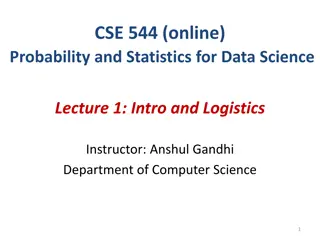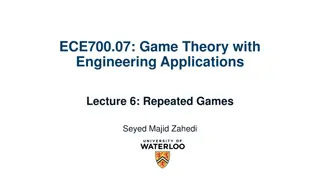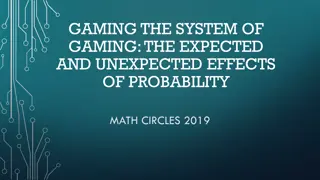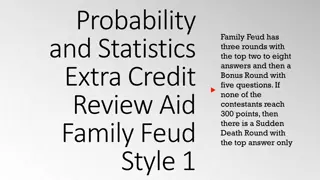Understanding Expected Value and Fair Games in Probability Theory
Explore the concept of expected value and fair games in the context of probability theory. Learn how to calculate averages and make informed decisions based on outcomes in games like Numbers Up! Gain insights into risk analysis and the economics of decision-making.
Download Presentation

Please find below an Image/Link to download the presentation.
The content on the website is provided AS IS for your information and personal use only. It may not be sold, licensed, or shared on other websites without obtaining consent from the author. Download presentation by click this link. If you encounter any issues during the download, it is possible that the publisher has removed the file from their server.
E N D
Presentation Transcript
Syllabus Prior Knowledge: Understanding of basic Probability theory
Numbers Up! A funfair game called Numbers Up! involves rolling a single die. Here are the rules: You win the number that appears on the die in uro 4 for a 4 6 for a 6 etc
Activity 1 1. How much did you win? 2. Work out your average(mean) amount you won per game having played the game 20 times. 3. When you have the value for the class mean, fill in the table below:
Activity 1 4. Does your average differ from that of the class? What could explain this? 5. What do you think the class average figure represents in the context of the game? 6. Would you pay 3 to play this game? Give a reason for your answer. 7. If you ran the Numbers Up! game at the funfair, how much would you charge people to play it? Explain your answer. 8. What do you think would be a fair price to pay to play this game? Why?
A Fair Price? If I roll a standard die many times what is the average score I can expect?
Probability Distribution Table 1 2 3 4 5 6 Score (X) Probability P(X) 1/6 1/6 1/6 1/6 1/6 1/6 = . ( ) x P x Mean 1 6 21 6 3.5 ( ) ..... Expected Value E X 1 6 1 6 1 6 1 6 1 6 = + + + + + (1) (2) (3) (4) (5) (6) = Numbers Up! = =
Probability Distribution Table 1 ? ? 2 ? ? 3 ? ? 4 ? ? 5 ? ? 6 ? ? Score (X) Probability P(X) = . ( ) x P x Mean ???? = ?? ? (??) 1 6 21 6 3.5 ( ) ..... Expected Value E X 1 6 1 6 1 6 1 6 1 6 = + + + + + (1) (2) (3) (4) (5) (6) = ?.?(?) ?(?) = ?.?(?) = 1 = = Numbers Up! = ?.?(?)
Expected Value = ( ) E X . ( ) xP x How much money a player can expect to win/lose in the long run on a particular bet The House Edge / Risk Analysis and Insurance/ Economics (Decision Theory) Mean: average of what HAS happened Expected Value: average of WHAT IS GOING to happen
Mathematical Expectation Suppose a couple decide to have three children. How many boys can they expect to have? Assume boys and girls are equally likely.
Sample Space 3rd 2nd B G B G B G B G BBB BBG BGB BGG GBB GBG GGB GGG B 1st B G Start B G G
Mathematical Expectation 0 0 1 1 2 2 3 3 No of Boys No of Boys Probability Probability 1/8 3/8 3/8 1/8 = ( ) 1 8 12 8 1.5 boys . ( ) x P x E X 3 8 3 8 1 8 = + + + (0) (1) (2) (3) = =
Fair or Unfair? 5 to play 8 2
Fair or Unfair? Use Two Methods 8 14 2 4
Fair Games Fair Fair Game Game A A game game is is said expected expected value cost) cost) is is 0 0. . If If this the the game game is is in this this value value is is negative, not not in in your your favour said to to be be fair value (after (after considering this value value is is positive, in your your favour favour; ; and negative, the favour. . fair if if the considering the positive, the the and if if game is is the game
